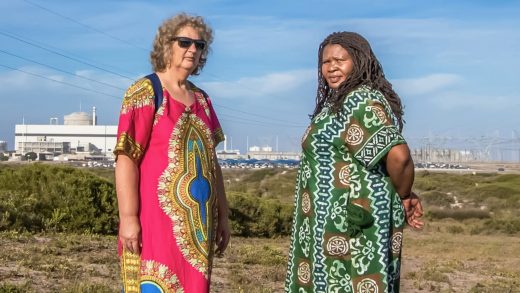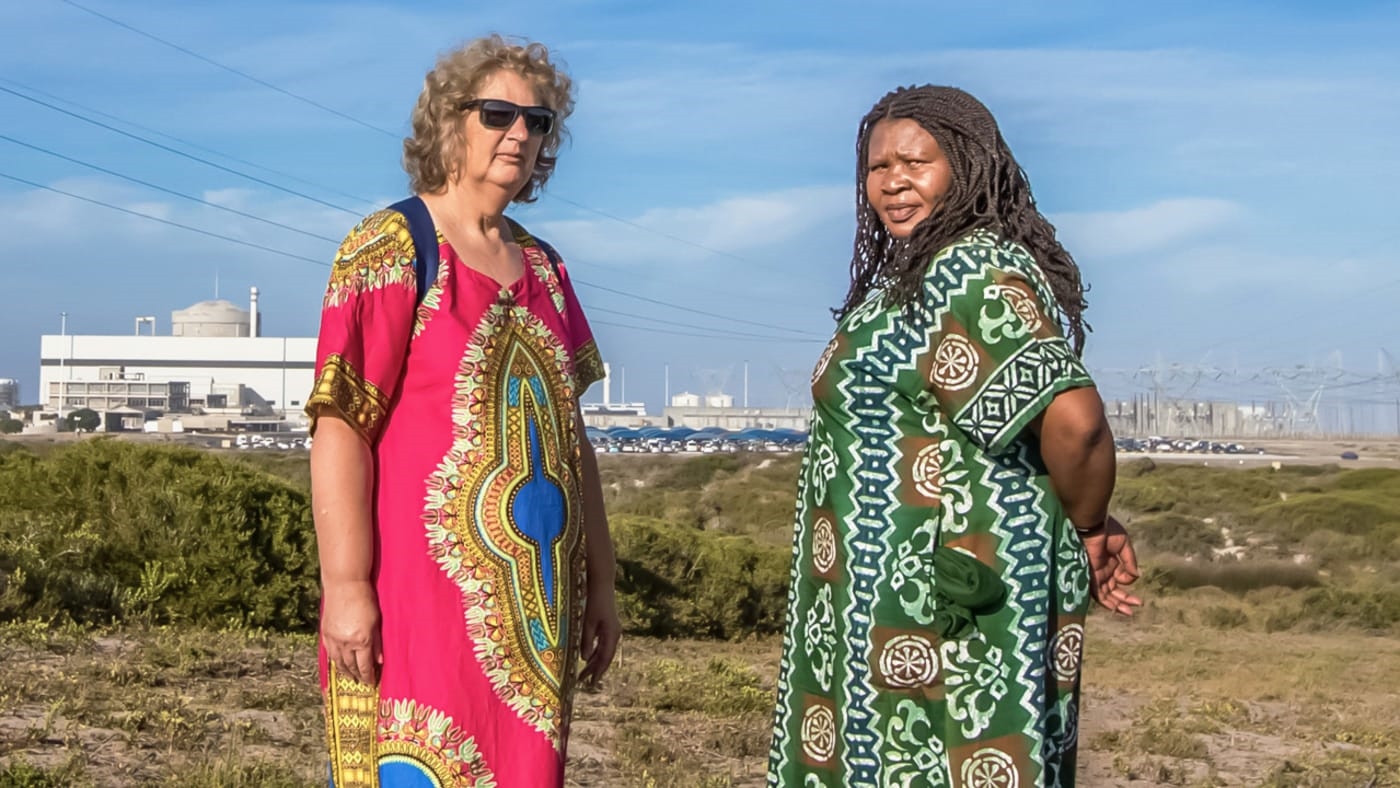These Women Activists Took On Government To Save The Environment
In South Africa, the government cut a $76 billion nuclear power deal between South Africa and Russia that was poised to decimate South Africa’s environment and jeopardize its efforts to build out clean energy. In France, the multi-million dollar deep-sea fishing industry was helping precipitate the collapse of many of the Atlantic Ocean’s most vital species.Especially when tied to corporate and geopolitical interests, the decisions of government are difficult to confront, and even harder to undo.
What connects these two incidents is that in both France and South Africa, activist women got wind of their countries’ poor environmental policies, and effectively used data, activism, and their own knowledge and determination to convince their leaders to reverse course. For their work, they’ve been awarded the Goldman Environmental Prize for 2018.
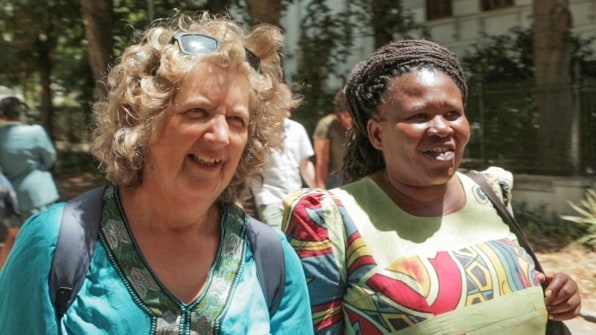
Makoma Lekalakala and Liz McDaid of South Africa met through their respective work in environmental advocacy–Lekalakala, who is black and based in Johannesburg, heads up Earthlife Africa, and McDaid, who is white, serves as the climate change coordinator for the Southern African Faith Communities’ Environment Institute in Cape Town, and previously worked with Earthlife. Both had come up in advocacy through the country’s anti-apartheid struggles, and translated the determination they fostered through that movement into fighting against the anti-environmental policies of South Africa’s recently deposed leader, Jacob Zuma.
Nuclear energy, they argued, creates devastating effects on natural environments and, because it produces radioactive waste, could precipitate disasters like the explosions at the nuclear plant in Fukushima in 2011 (The nuclear energy issue seriously divides environmental activists). In 2014, Lekalakala got word of the fact that Zuma had inked a secret deal with Vladimir Putin for a Russian energy company, Rosatom, to develop 9.6 gigawatts of nuclear energy in South Africa by building up to 10 nuclear power stations throughout the country. The $76 billion deal, allegedly drawn up in response to a spate of power outages in South Africa in 2013, would have radically expanded upon the country’s one existing nuclear power station, Koeburg, which is operated by South Africa’s state-owned electric utility and whose radioactive nuclear waste buried under the indigenous lands of the Nama people, who were not consulted about the process.
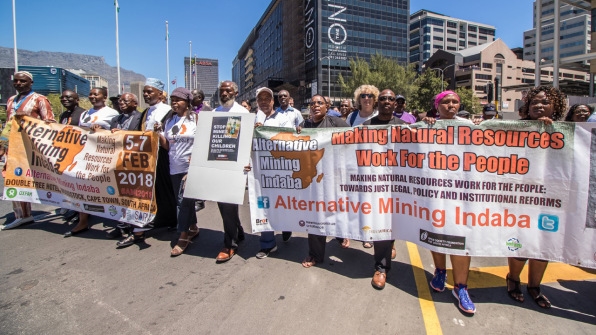
The South African government similarly failed to consult the communities that were slated to be affected by the new nuclear power deal with Russia. EcoDefense, a Russian environmental group, sent notice of the deal to Earthlife Africa, which downloaded the documentation from the Rosatom website before it removed evidence of the plans. Earthlife used the document to begin to raise awareness among activist communities that the government was proceeding with a secret and harmful deal.
“We have a democratic government, we have to work together to ensure that the repression that happened in the apartheid era doesn’t happen today,” Lekalakala says. “That’s what unites not only us, but many other people who are living in South Africa, because we have to ensure that the hard-won democracy continues.”
Lekalakala and McDaid mobilized their respective networks, and developed a strategy to break the deal. By keeping the arrangement with Russia secret, and bypassing the opportunity for debate and public commentary, Zuma essentially overrode the democratic process, and Lekalakala and McDaid brought a legal challenge against the deal on those grounds; they were the sole signatories of the challenge. After years of anti-nuclear protests in front of the parliament building in Cape Town, and public rallies against the project, the South Africa court ruled in April 2017 that the deal was unconstitutional.
Despite the inherent risk of challenging the government, Lekalakala and McDaid held steady, knowing that they had the backing of both the law and environmental science to do so.
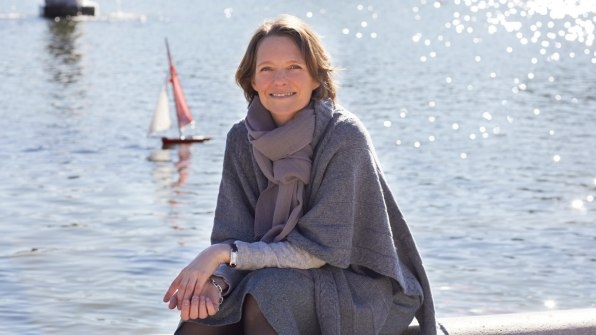
Claire Nouvain, a French wildlife filmmaker and journalist, took a similar approach when she brought a challenge against the harmful practice of deep-sea fishing–which receives around $18 million in government subsidies annually.
Deep-sea fishing utilizes a technique called trawling, in which boats drag massive nets along the ocean floor to capture as much sea life as possible. The method has been likened to “clear-cutting a forest to catch a few birds”: Not only are the unwanted species picked up by the net tossed back overboard and rarely survive, but the process strips essential marine flora from the ocean floor in large quantities. A 10-day deep-sea fishing trip could scrape as much as 18 square miles of ocean floor.
For her journalistic work, Nouvain traveled to the Monterey Bay Aquarium to research marine life at 4,000 meters underwater. “I was entranced beautify of these animals, and the fact that they’re almost totally unknown,” Nouvain says. But that same lack of awareness, she adds, is what has allowed the practice of ocean trawling to proliferate: by failing to understand the depth and complexity of marine life at the bottom of the ocean, fishing companies encourage ripping it up for profit. In 2005, Nouvain launched the nonprofit BLOOM to bring together other ocean advocates and organizations to strategize around how to end the practice of deep-sea fishing.
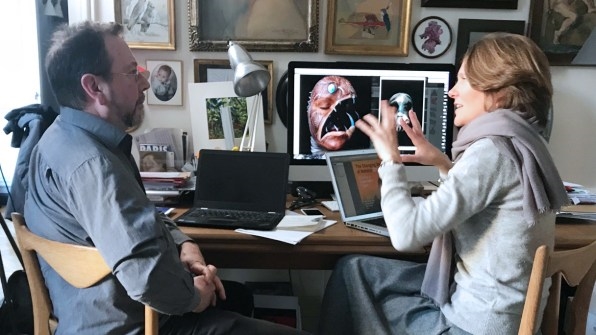
“My first thought was that we needed to revert the perception of the deep sea as a desert,” Nouvain says. She authored a book on the complexity of the marine environment and the consequences of harmful deep-sea practices. And in 2008, when the EU began to consider a new framework for fishing regulation, Nouvain launched a data-driven campaign to call for an end to deep-sea trawling. “A deep-sea trawl ban was the only reasonable thing to do,” she says. The practice results in just 1% of overall catch in the EU, destroys environments, and is kept profitable only by public subsidies. “The economic model is completely irrational,” Nouvain says. “Without public subsidies, they wouldn’t be making money, and we wouldn’t be fishing the deep seas.” Armed with this data, Nouvain prepared to take on the industry, starting in her home country of France.
In France, the supermarket chain Intermarché operated the majority of the trawling boats. Nouvain engaged the media and the public in raising awareness of how a change in Intermarché’s fishing practices would support sustainability and advance a more economically viable fishing industry. The general outcry Nouvain incited over the fishing industry, and Intermarché’s role in the practice specifically, landed her a negotiation with the supermarket chain in late 2013, which resulted in Intermarché pledging to end fishing below 2,600 feet. That created momentum for Nouvain to successfully advocate for an EU-wide ban on the practice in 2016.
These victories, for both Nouvain and Lekalakala and McDaid, are not a stopping point. Rather, all the women will continue to use the momentum to advocate for further change.
Nouvain, for her part, wants to end subsidies for harmful fishing practices at “a planetary scale,” she says. “That’s our next tiny mission.” She points to the fact that there is one specific Sustainable Development Goal, drawn up by the U.N. in 2016, which specifically calls for an end to harmful fishing subsidies by 2020 because they encourage overfishing. “That’s a call to action for the World Trade Organization,” Nouvain says, which is currently considering passing legislation to meet that goal.
And now that Lekalakala and McDaid have reaffirmed both the democratic process in South Africa, they’re working to remind the public that they have “a right to participate in decisions that affect you, and a right to have access to information,” McDaid says. She and Lekalakala are focused on implementing truly sustainable energy solutions in South Africa, but “more importantly than those technologies, the leap from the dirty into the clean, we need to ensure that those technologies are socially owned and that people at the local level feel empowered to control these decisions,” she adds.
(18)

